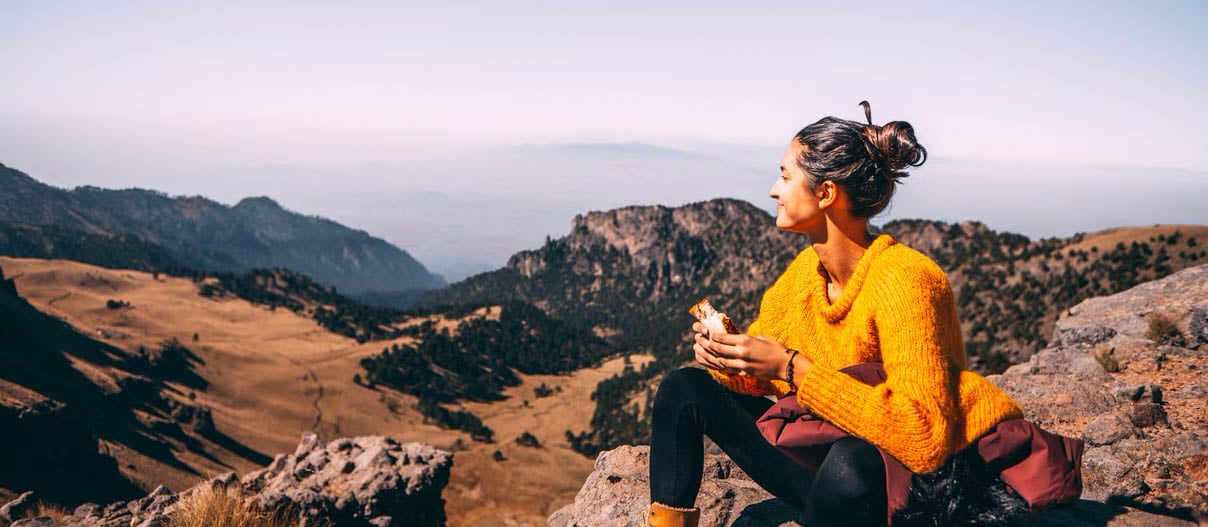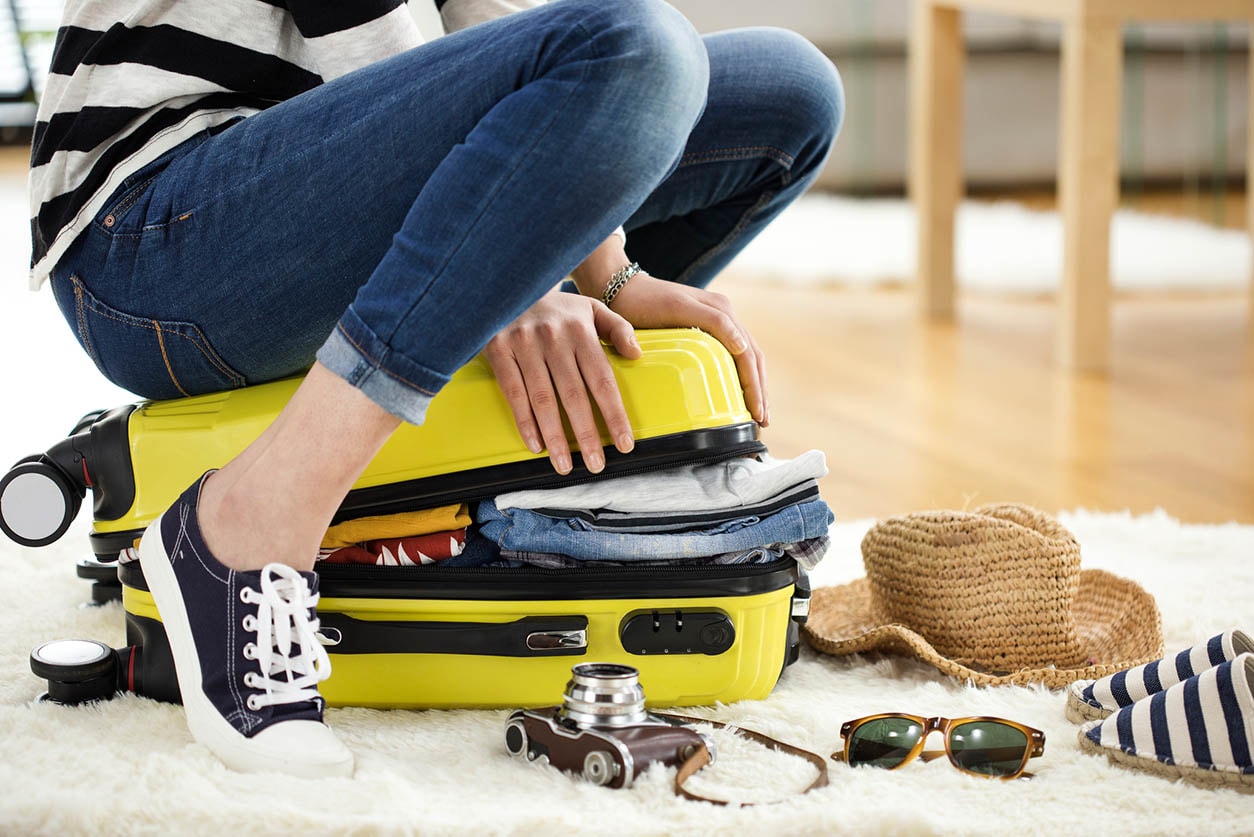6 Travel Tips for Women Traveling Solo
6 Min Read | Published: July 5, 2024

Want to know how to travel solo? Women travel experts offer these solo travel tips to help you get the most out of your travels while staying safe.
At-A-Glance
- When traveling solo, safety can be a source of apprehension in foreign or unfamiliar locations.
- Planning ahead can mitigate these safety concerns.
- Mixing together day trips, city tours, and local group tours can help improve your solo travel experience.
These days, many women are embracing solo travel. But most women travelers can’t be simply categorized as solo travelers or group travelers. Instead, they choose their travel style based on the destination and the type of trip they want to take, explained Mar Pages, co-founder of Solo Female Travelers. She cited as proof her company’s own survey which shows that most travelers mix group and solo travel, travel with friends and family, and day tours.1
The flexibility and independence of solo travel come with questions about whether solo trips can be safe and enjoyable. Most solo traveler experts say yes, but have specific suggestions to enhance the experience.
“My number one tip is not to let fear stop you from taking a chance and putting yourself out into the world,” said Samantha Plavins, founder of She Walks the Walk, a company that specializes in global walking adventures for women.
Here are six tips for women traveling solo, compiled from these and other travel experts.
1. Start Small When Traveling Solo
For your first solo trip, try a domestic vacation. Or, if you wish to cut your teeth internationally, try a country where the status of women is similar to that of the U.S., where a woman traveling alone might not stand out. Save solo adventure travel for when you have more experience venturing by yourself.
A woman just starting out on solo travel may feel more comfortable and have a better time in Europe or Scandinavia, where cultural differences from the U.S. are more likely to be interesting, not confrontational, suggested Amanda Black, founder of The Solo Female Traveler Network, a worldwide travel community for women. Doing a few domestic weekend trips can help develop travel skills and comfort before taking on a longer international trip, she said.
2. Research Your Destination
Before booking your travel, it’s best to research the location and determine if it’s viable for solo travel, or for travel at all. The choice of destination can have the greatest impact on your experience, said Black.
The U.S. State Department also recommends women travelers research their destination when traveling internationally, and the department’s Overseas Security Advisory Council has country security reports on destinations all over the world that include sections addressing safety concerns for women travelers.2
Solo Female Travelers has a tool to help you assess travel risk: The Solo Female Travel Safety Index shows safety information by country. Along with public safety data, the index calculates the risk of scams, theft, or harassment, as well as the country’s perceived attitudes toward women based on information provided by fellow female solo travelers, not tourism organizations or governments.
3. When in Rome: Observe Local Norms
When traveling abroad, take your cue from locals. In some more conservative countries, you may be expected to wear a head covering or avoid shorts and sleeveless shirts.2 Check with the local consulate about what to expect. If a country’s norms aren’t comfortable for you, it might not be the right destination.
Be aware that petty theft can be common in tourist areas, and looking like a tourist can make travelers an easy mark, warned Plavins. She suggested leaving expensive jewelry at home and keeping cash and extra credit cards in a safe place – not the bag you carry while sightseeing. Plavins also recommended carrying a first aid kit if you plan to travel on wild terrain.
4. Take Precautions with Lodging
When traveling alone, basic safety measures can help take some of the worry out of being alone in an unfamiliar locale. These include choosing hotel rooms on higher floors away from stairwells and parking lots and making sure reception clerks don’t announce your room number.3
While some travelers carry a rubber doorstop to secure their room from the inside, Pages suggested bringing a motion-activated door alarm, instead, because it won’t block the exit in an emergency. Alternatively, you could hang a mug from the doorknob. If the door is opened, the crashing noise serves as a warning. Most hotels already have mugs in the room along with their coffee makers.
5. Tap Your Social Network for Local Advice
Using your social network to connect with other travelers or locals at your destination can be a good idea, especially if you have special interests. It can help you find experiences off the beaten path – and locals to join you. Lisa Skriloff, editor of Dance Travel News and an experienced solo traveler, reached out to her network before a trip to Iceland for recommendations that turned up, among other things, a swing dance bar with a rockabilly band.
Skriloff likes to reach out to fellow dance enthusiasts on social media before trips. A search for “swing dancing” on one social network before a trip to Sicily led to several local swing dance groups and an upcoming swing dance weekend in Palermo scheduled for the same time as her trip. It also connected her with a local dance fan who was also attending the festival, where they arranged to meet.
6. Book Local Tours
Local city tours can help you get to know the local area upon arrival. Tour operators can manage your transportation, while still letting you travel independently. Many major cities have hop-on/hop-off buses that can be a great way to get around and see the sights at your own pace.
Day trips to see attractions or nearby cities can take the worry out of arranging transportation and traveling safely without committing you to a long, packaged itinerary with a group that may not fit you. Black noted The Solo Female Traveler Network offers meetup tours for single travelers that go all over the world.
“My biggest piece of advice for anyone thinking about solo travel is to just go. Everything like transportation, accommodation, and what to see is totally Google-able,” said Black. “What you won't find online is the courage to book that flight and make the decision to chase your dreams and invest in yourself. So, just go!”
The Takeaway
Solo travel is an attractive option for travelers who want an independent experience. With thoughtful planning, you can be safe and have fun.
1 “2024 Solo Female Travel Trends and Statistics,” Solo Female Travelers
2 “Women Travelers,” U.S. State Department, Bureau of Consular Affairs
3 “What to Wear Traveling in Conservative Countries,” Harvard GSS
4 “Learn About Your Destination,” State Department
5 “Hotels | International Safety and Security,” University of Illinois Urbana-Champaign
SHARE
Related Articles
Amex Platinum® Travel Benefits That Make Every Trip Extraordinary
Elevate every journey with exclusive American Express® Platinum Card® travel benefits. Enjoy premium lounge access, luxury hotel perks, and more.
How to Travel Alone and Save Money
From travel insurance to budgeting, solo travelers have a lot to consider. Here are a few money-saving tips to help you plan your next solo trip.
Plan Your Next Trip With Travel Rewards Credit Cards
Dreaming about your next vacation? With a travel rewards credit card, you can plan your trip and redeem your points to cut travel costs.
The material made available for you on this website, Credit Intel, is for informational purposes only and intended for U.S. residents and is not intended to provide legal, tax or financial advice. If you have questions, please consult your own professional legal, tax and financial advisors.











